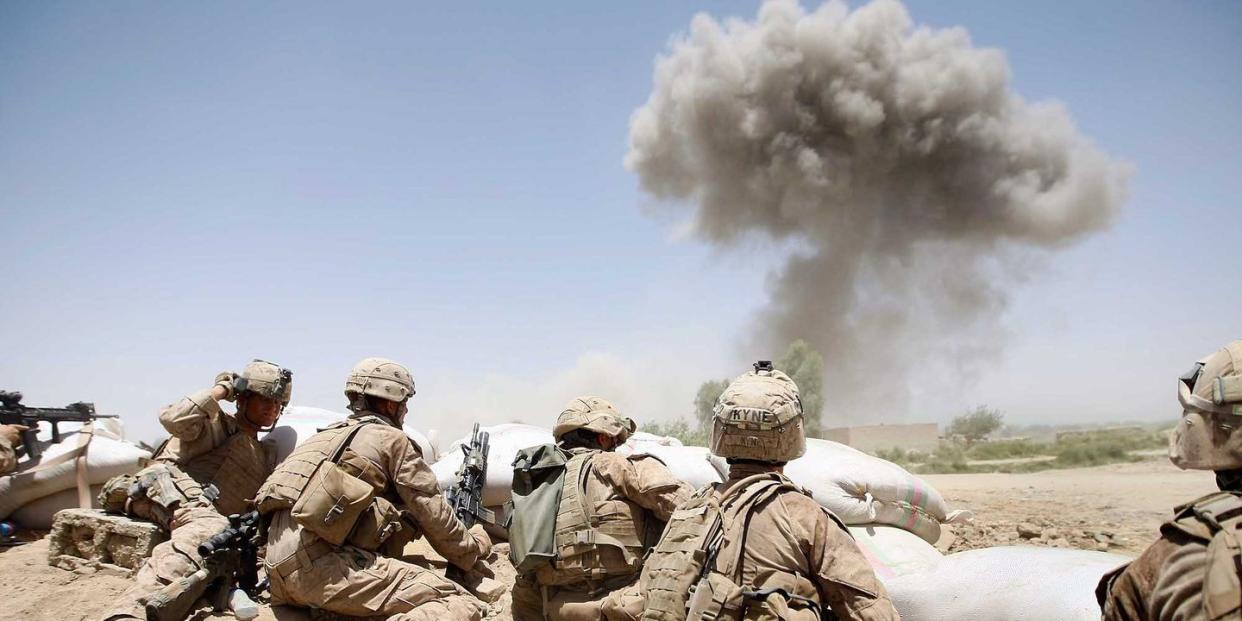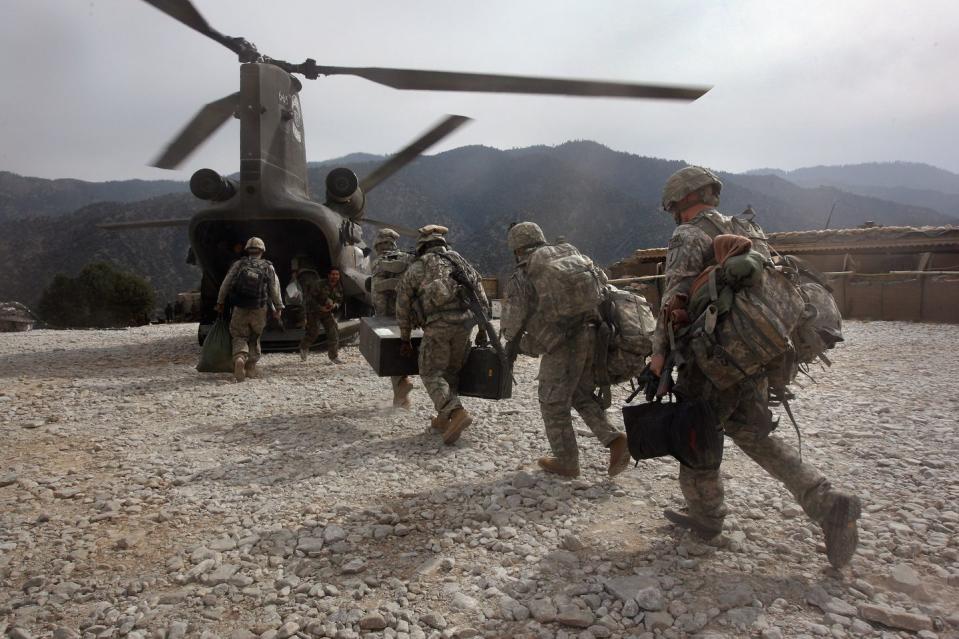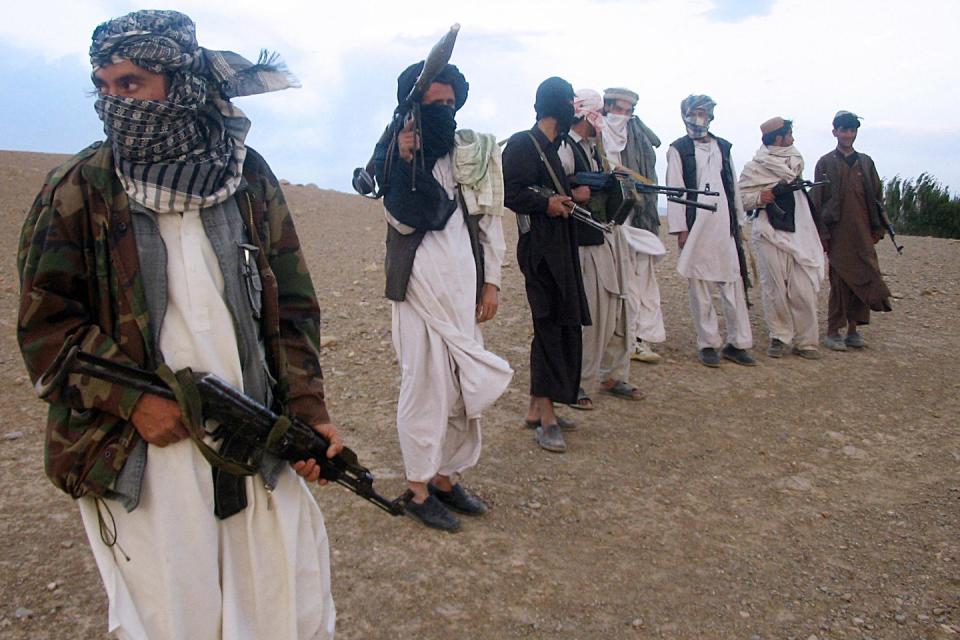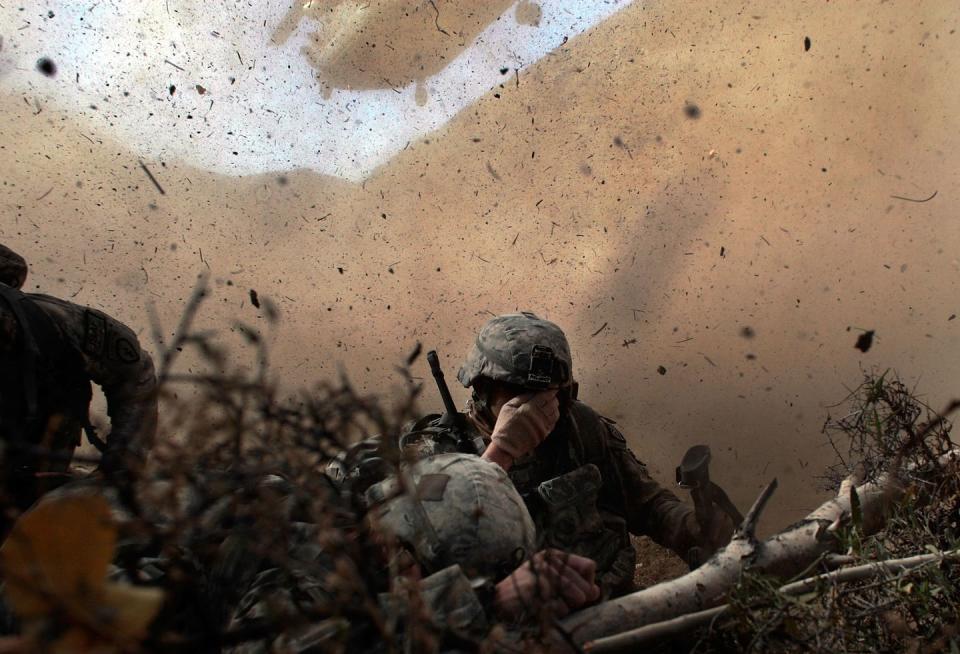This Fox News Segment Accidentally Became a Useful Discussion of America's Endless War

An intriguing scenario develops whenever Fox News mistakenly invites on a Dissenter. Yes, the Fair and Balanced Network sometimes purposely hosts Snowflake Liberals to be bashed by Tucker Carlson and Co. But it's when the hosts don't expect to be confronting someone from outside the infotainment vortex that we can all really learn something. Last month saw an incident where a booking mishap led to a fierce critic of President Trump's immigration policy getting (very abridged) airtime with some shocked hosts, and Tuesday morning brought a new sample.
The hallowed ground of American discourse known as Fox & Friends invited former Navy SEAL Jake Zweig on to discuss terror threats and how to stop them after a man drove into pedestrians outside the U.K. parliament Tuesday in what authorities suspect it was an act of terrorism. What host Brian Kilmeade seemingly did not expect was for Zweig to suggest that dropping more bombs might not be the solution:
Brian Kilmeade has an awkward time as a former Navy SEAL tells him that stopping terrorist attacks means that the west has to "stop dropping bombs on their head and creating more terrorists" pic.twitter.com/ImnFf3Sjyb
- Bobby Lewis (@revrrlewis) August 14, 2018
"We're going to have to take a different approach," Zweig said. "We're going to have to stop dropping bombs on their head and creating more terrorists. Probably going to have to go to an educational piece. What we're doing isn't working at this point."
"Right, uh," Kilmeade spluttered. "But allowing them to gather, train, and attack is not working either. And we allowed them to fester and take root." He then went on to list how many ISIS members there are in the world.
"I mean, that's what it is," Zweig replied. "They've been at war for 2,000 years. And if you remember what Osama bin Laden said, he's willing to fight this for generations. Is the American people, and the western world, are we as committed as they are to this battle? I doubt that, highly."
"They're losing, by the way," Kilmeade said. "So we're seeing that."

Are they losing, or are they festering in huge numbers, training to attack us? In truth, it's both. For years now, beginning under President Obama and continuing under Trump, the U.S.-led coalition has inflicted huge losses-in territory and manpower-on ISIS in Iraq and Syria. Yet is the threat of Islamic extremist terrorism really diminished? The attackers now hail from the suburbs of Brussels or Paris as often as they do the Mideast. It is an ideology that we've failed to defeat after nearly 17 years of firing guns and dropping bombs.
Accidentally or not, the discussion on Fox & Friends is a timely reminder that the United States of America has embraced the new reality of Endless War. Yesterday, in a highly militarized ceremony, the president signed a new defense spending authorization bill to the tune of $716 billion. That will last us one year. Among the major international news of the day is a bulletin that the Taliban just overran a military base in northern Afghanistan, killing 17 Afghan soldiers. Isn't that a headline that could have appeared two years ago, five years ago, even a decade ago?

A report from the Watson Institute of International and Public Affairs at Brown University found that, by the end of fiscal year 2018, the United States will have spent $5.6 trillion on post-9/11 wars. As of August 14, 2018, 2,372 American service members have been killed in Afghanistan alone. 4,411 were lost in Iraq. More than 52,000 were wounded in those two theaters, some with injuries that will haunt them for the rest of their lives. They may find it difficult to work, or play in the backyard with their children. And that's to say nothing of the mental scars they have brought home, and the sleepless nights that surely lie in wait.
The question is what we have to show for all that sacrifice. Asking it carries the risk that the sacrifice is somehow devalued. Not asking risks that we will continue allowing that sacrifice to continue without proper justification. When was the last time a president or a member of Congress was really made to justify our current strategy in the Middle East? It was likely under Obama-when, if anything, he was criticized for not throwing even more money and weapons and blood at the problem.

There is a persistent sense that many, like Kilmeade, no longer really go through the process of justifying American war. Perhaps that is because those of us who are not fighting aren't really at war. Unless they have children or relatives in the armed forces, cable news hosts and magazine writers and stockbrokers and even assembly-line workers do not feel the day-to-day cost of our interventions in Afghanistan and Iraq and Yemen and Niger and Somalia and wherever else we might be at this moment.
However, we can get a glimpse. Former Marine and longtime war correspondent C.J. Chivers is out with a new book this month called The Fighters, which explores the experience of waging our wars through the eyes of those doing the waging. An excerpt was published Sunday in The New York Times:
Specialist Robert Soto had been haunted by dread as the soldiers left their base, the Korengal Outpost. His platoon was part of an infantry unit that called itself Viper, the radio call sign for Bravo Company, First Battalion of the 26th Infantry. Viper had occupied the outpost for nine months, a period in which its soldiers were confined to a small stretch of lower valley and impoverished villages clinging to hillsides beneath towering peaks. Second Platoon had started its deployment with three squads but suffered so many casualties that on this day even with replacements it mustered at about two-thirds strength. With attrition came knowledge. Soto knew firsthand that the war did not resemble the carefully considered national project the generals discussed in the news. He had enlisted in the Army from the Bronx less than two years before, motivated by a desire to protect the United States from another terrorist attack. But his idealism had turned swiftly into realism, and the war had become a matter of him and his friends surviving each day as days cohered into a tour. He was doubtful about the rest, from the competence of the war’s organizers down to the merits of this ambush patrol. There’s no way this works, he thought. The valley felt like a network of watchers who set up American platoons, relaying word to those laying traps.
Soto sensed eyes following the patrol. Everybody can see us.
He was 19, but at 160 pounds and barely needing to shave, he could pass for two years younger. He was nobody’s archetype of a fighter. A high school drama student, he joined the Army at 17 and planned to become an actor if he survived the war. Often he went about his duties with an enormous smile, singing no matter what anyone else thought - R. & B., rap, rock, hip-hop, the blues. All of this made him popular in the platoon, even as he had become tenser than his former self and older than his years; even as his friends and sergeants he admired were killed, leaving him a burden of ghosts.
Soon, recruits who were not yet alive during the attacks of September 11, 2001 will be old enough to enlist. They, too, will fight the wars that, to varying degrees, we started in response to that day. But is the cause we began with still the cause now? What is the mission? How long will it truly take? How many men and women will be required? How many will die? What will Afghanistan or Iraq look like when we are ready to leave? And can this struggle for the minds and souls of human beings be won with guns and bombs?
('You Might Also Like',)

